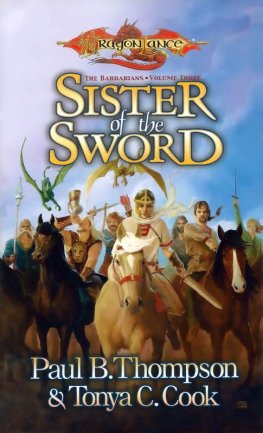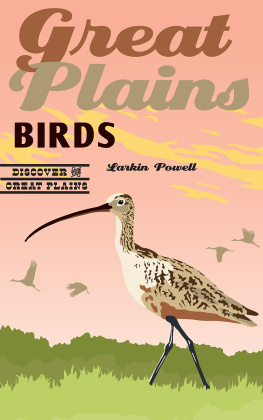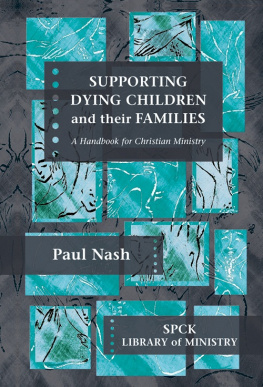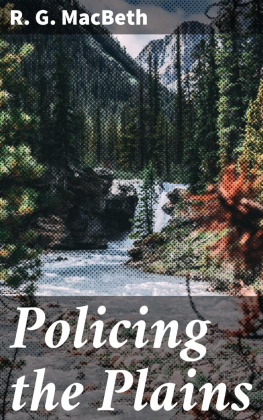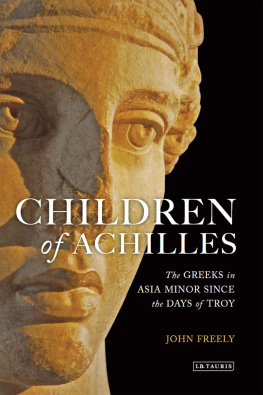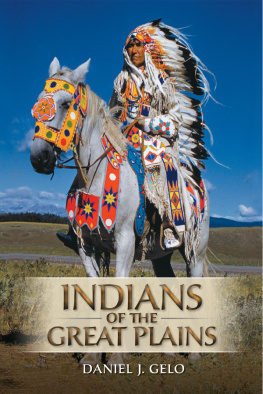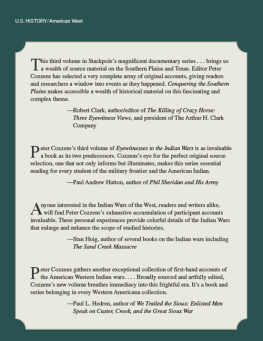Paul Cook - Children of the Plains
Here you can read online Paul Cook - Children of the Plains full text of the book (entire story) in english for free. Download pdf and epub, get meaning, cover and reviews about this ebook. genre: Romance novel. Description of the work, (preface) as well as reviews are available. Best literature library LitArk.com created for fans of good reading and offers a wide selection of genres:
Romance novel
Science fiction
Adventure
Detective
Science
History
Home and family
Prose
Art
Politics
Computer
Non-fiction
Religion
Business
Children
Humor
Choose a favorite category and find really read worthwhile books. Enjoy immersion in the world of imagination, feel the emotions of the characters or learn something new for yourself, make an fascinating discovery.

- Book:Children of the Plains
- Author:
- Genre:
- Rating:4 / 5
- Favourites:Add to favourites
- Your mark:
- 80
- 1
- 2
- 3
- 4
- 5
Children of the Plains: summary, description and annotation
We offer to read an annotation, description, summary or preface (depends on what the author of the book "Children of the Plains" wrote himself). If you haven't found the necessary information about the book — write in the comments, we will try to find it.
Children of the Plains — read online for free the complete book (whole text) full work
Below is the text of the book, divided by pages. System saving the place of the last page read, allows you to conveniently read the book "Children of the Plains" online for free, without having to search again every time where you left off. Put a bookmark, and you can go to the page where you finished reading at any time.
Font size:
Interval:
Bookmark:
Paul Cook, Tonya C. Cook
Children of the Plains
Chapter 1
The sun was low in the morning sky, yet already the heat was stifling. Denizens of the night had retreated to their dens, burrows, and nests, away from the glaring sun and the promise of even worse heat. Small herds of elk, having grazed when the grass was still shiny with dew, clustered together under widely separated trees, monopolizing the only shade around. Not even a heat-crazed panther could shift them from the meager cover. As the sun climbed higher, only two kinds of creatures were moving in the heat: flies and humans. Neither could afford to remain idle while there was food to find.
Five humans, lean and brown, lightly clad in buckskins, silently crossed the empty savanna in single file. Widely spaced to cover the maximum amount of ground, they swept the grass on either side with their eyes, the butts of their spears, and sticks. Anything that moved was fair game.
Leading the group was Oto, father of the three children. Hed seen thirty-eight seasons on the plain, and his face was seamed with cracks, like a lake bed baked hard by the dry season. Otos light brown hair had thinned to the point where his scalp showed through and was now burned as brown as the rest of him. Streaks of white stained his beard. Though old for a plainsman, Otos eyes were still sharp and his hunting sense legendary.
Ten paces behind Oto walked Amero, his eldest son. At thirteen, Ameros chin was beardless, and his voice still had a childs squeak. Not yet a man, custom denied Amero a mans weapon. The boy used a boys tool, a long springy pole suitable for probing rabbit burrows and gigging fat frogs. Amero was sweating under his buckskins. He would have loved to strip down to his loincloth, but the path was dotted with thorny scrub and knife-grass, either of which could shred flesh to the bone in an hours forage. Sighing, Amero hung his hands on the pole across his shoulders and concentrated on keeping his father in view.
Eleven steps back, his mother, Kinar, hefted her baby off her aching hip. Menni was almost two, a strapping boy-child. He nodded against his mothers shoulder, his legs dangling and his hands draped around her neck. Kinar longed to put him down, but she knew Menni could never keep up with Otos swift pace.
Last in line was Nianki, the oldest child and the last surviving daughter. Kinar had borne Oto seven children, but they were a lucky family. She knew other women whod birthed more babies yet had none left to show for it. That Nianki and Amero had survived to such advanced age was a tribute to Otos skills as a hunter and her own wisdom in foraging.
Nianki was a strong girl who could run half a day without stopping, climb any tree, and snatch a black viper from its sunning rock faster than it could strike, but she was no help to her mother. There was no point in handing her the baby. Inside ten paces Menni would start to cry, and Niankis usual solution was to slap him.
Kinar had tried to pass on to her daughter the knowledge shed acquired in thirty-one summers when to pick berries so they didnt cause a gut-ache, the way to tell poisonous mushrooms from the delectable kind, how to soothe cuts with the sap of soft-tongue plant, and how to harvest honey from a wild beehive without getting stung. Nianki preferred to run after her father and be a hunter. Oto would not allow a female to carry a spear, so Nianki had made her own weapon, a throwing club with a sharp flint head.
Nianki didnt notice her mothers glances back at her. The girls eyes were on their surroundings, constantly scanning for danger or prey.
The earth was still dry from winter. Hard red clay showed through the tufts of grass. The last rain had been three days ago, a brief shower accompanied by much lightning. It softened only the surface of the soil, which dried quickly. Here and there Nianki saw random footprints of animals whod crossed the trail while the clay was wet a rabbit, an elk, the flat, wide prints of a young bear. A flurry of circular dents in the soil told of the passing of a party of centaurs. Oto got along with centaurs, but he always gave them wide berth. He said you never knew what a centaur might do or say they were wild creatures, not human at all.
Beside the elk prints she spotted another set of tracks. They were smaller, and of unusual shape. Nianki dropped to one knee to study the unfamiliar spoor.
The prints were long and narrow, with a short pad and strangely long toes. She traced the dried impression with her finger, then sniffed it. A faint odor, pungent like rotten meat. These were the footprints of a predator.
Soundlessly, Oto appeared out of the hush on her right. Why are you stopped? he said, resting the butt of his spear on his right foot. It was a lifelong habit that had left a callus on his foot that fit the shaft like a socket.
She pointed to the tracks. I dont know this animal, Oto.
What can you tell about it?
Her brows met over her nose as Nianki frowned. It smells of dead meat. I think, a hunter.
Not a scavenger?
It followed a live elk. She indicated the other tracks with a sweep of her hand. A lone bull. I think this beast culled him from the herd.
Oto knelt and studied the tracks with a practiced eye. Yes. The bull was running, but not hard. A single animal was dogging him, driving him He lifted his sun-darkened face to the southern horizon. In the distance was the highest relief on the plain in all directions, a pile of upthrust boulders. A hundred wolves could hide in the rocky crevices.
Ambush, Oto said.
A pack?
Her father nodded.
Have you seen animals hunt like this before?
No. Only men.
Kinar and Amero had noticed something amiss and doubled back to find Oto and Nianki. The baby stirred and began to fuss. Kinar rocked him gently and made soothing noises in her throat.
What is it? Amero asked.
Animals Oto doesnt know. A hunting pack.
Amero scanned the bush nervously. Are they still around?
Oto stood. The elk have bedded for the day. They would not do so if there were a hunting pack near.
Nianki stood. We should go back, she declared.
Oto folded his arms. Weve left last nights camp. Game has fled, and Kinar has picked the land clean. Going back means going hungry.
I dont like this, Nianki said.
Nor do I, added Kinar worriedly.
Mother and daughter seldom agreed, and their sudden cooperation was unnerving. Amero shifted uneasily. Perhaps we ought to go back? he ventured.
Youre not the hunter, Oto replied sternly. His dark eyes rebuked all of them. We go ahead. To go back is to go hungry.
To go ahead may mean danger! Nianki insisted, stamping her foot. Kinar hugged the baby closer and backed away from her. Father and daughter had fought before, and over less than this.
Surprisingly, Oto chose to talk rather than use his fists. No hunting pack would attack a whole family. We are too many and too wise. These beasts, whatever they are, are hunters like us. They like easy prey. They cull slow-witted bulls or weak calves. They dont stalk the strong.
Amero stared. Hed never heard Oto speak so many words at one time. As he looked from his father to his defiant sister, it suddenly occurred to him that Nianki was as tall as their father. Next to her, Oto seemed a gnarled old tree bending to the wind of a fresh storm. Amero wondered if his fathers thoughts were the same as his: This time, if he dared strike Nianki, she might strike back, and her blows could cause more hurt to him than his to her.
Menni burped loudly and began to cry. This broke the awkward silence. Oto handed his spear to Nianki and took his son from Kinars arms. He held Menni at arms length in scarred, callused hands.
Last child, he said in an odd, hollow voice. I give you my protection.
Font size:
Interval:
Bookmark:
Similar books «Children of the Plains»
Look at similar books to Children of the Plains. We have selected literature similar in name and meaning in the hope of providing readers with more options to find new, interesting, not yet read works.
Discussion, reviews of the book Children of the Plains and just readers' own opinions. Leave your comments, write what you think about the work, its meaning or the main characters. Specify what exactly you liked and what you didn't like, and why you think so.

